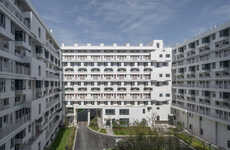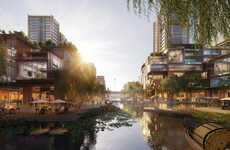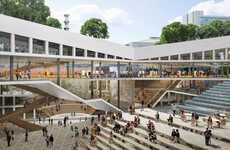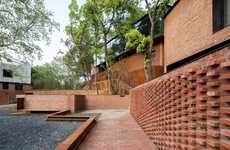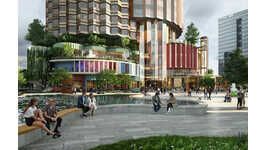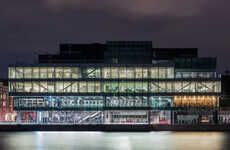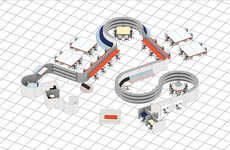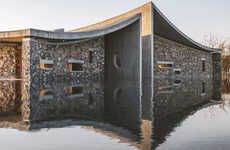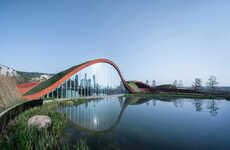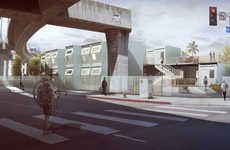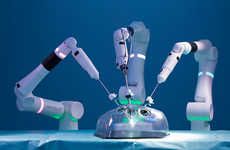
OMA Proposes an Architectural Design for the New Chinese Economy
Kalin Ned — May 18, 2018 — Art & Design
OMA is one of four firms, whose proposals were selected to house and nurture the new Chinese economy in Chengdu. The architectural development is necessary since the country is amid a revolution -- "from a production-oriented economy to a knowledge and service-based economy." This calls for a complete reconstruction of the infrastructure, in order for the urban arrangement to benefit start-up firms, entrepreneurship and the-so-called 'Unicorn' companies.
To be able to sustain the new Chinese economy, OMA divides the island into three parts. Firstly, the 'Living Lab' is designed to be an observation deck, as well as to house an 'Innovation Engine.' Secondly, the 'Weave Zone' which is created to be a mixed-use program of spaces that are essential for life and work. Finally, there is the perimeter that hosts the headquarters of the Unicorn companies.
To be able to sustain the new Chinese economy, OMA divides the island into three parts. Firstly, the 'Living Lab' is designed to be an observation deck, as well as to house an 'Innovation Engine.' Secondly, the 'Weave Zone' which is created to be a mixed-use program of spaces that are essential for life and work. Finally, there is the perimeter that hosts the headquarters of the Unicorn companies.
Trend Themes
1. New Chinese Economy - Opportunity for disruptive innovation in developing technologies and services that cater to the needs of a knowledge and service-based economy.
2. Urban Reconstruction - Opportunity for disruptive innovation in architectural design and infrastructure development to support the growth of start-up firms and entrepreneurship.
3. Mixed-use Spaces - Opportunity for disruptive innovation in creating versatile spaces that cater to both work and personal needs, promoting productivity and convenience.
Industry Implications
1. Technology - Opportunity for the technology industry to develop advanced solutions and platforms to support the new Chinese economy's transition to a knowledge-based economy.
2. Construction - Opportunity for the construction industry to create innovative architectural designs and infrastructure solutions to facilitate the urban reconstruction needed for the new Chinese economy.
3. Real Estate - Opportunity for the real estate industry to invest in and develop mixed-use spaces that cater to the needs of start-up firms, entrepreneurship, and unicorn companies.
4.6
Score
Popularity
Activity
Freshness


